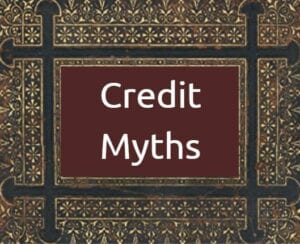Interested in checking your credit reports? Applying for new credit or a loan? While both involve checking your credit rating there’s an important difference between the two. One is a soft credit check, the other is a hard credit check. Understanding the difference between the two is important. Not understanding the difference could actually cost you a lot of money.
What is a credit check?
Lenders do credit checks to assess your risk level as a borrower before they decide whether to lend you money. A credit check involves reviewing your credit report. A credit report includes important credit and personal information that helps lenders decide what you qualify for.
Reviewing your report gives companies a chance to see your credit history, payment habits, and the types of loans you’ve taken out. They use this information to assess how likely you are to repay your debts.
Companies that offer financial services that may use credit check include:
- Banks and credit unions
- Credit providers
- Utility suppliers
- Cell phone companies
- Landlords and rental agencies
- Employers (although they will not see your full report)
Most significant financial commitments, like credit cards, big purchases, or loans, require a credit check. Lenders want to be sure you will meet your financial obligations.
Types of credit checks
There are two types of credit checks – soft and hard. The kind of credit check depends on who requests the information and what the info is used for.
Soft credit check
Soft credit checks provide a basic overview of your financial history. It does not contain all the information about your finances. Companies or lenders may do a soft check while doing a pre-approval to check your eligibility, but is not used during the actual application process. Checking your own credit also counts as a soft inquiry on your credit.
Soft checks do not show up on your credit report and do not affect your credit score. There is no limit to how many you can do, even in a short period. Unlike hard checks, soft credit checks can legally be performed without your consent.
What is the impact of a soft credit check?
Soft credit checks do not impact your credit score or rating and do not appear on your credit report when you apply for credit. Soft credit checks can even be used as a basis for determining your chances of an application being approved before completing it.
What situations would require a soft credit check?
Soft checks are often used to gather information and can include:
- Checking your own credit or requesting copies of your credit report
- Considering your eligibility for a credit application before completing it
- As part of a background check at work or when applying to rent a new home
- An insurance provider needs more information to determine your premiums and payment schedules
Hard credit check
Hard credit checks happen when you apply for credit with a new service provider or lender. It is a complete search of your credit report and provides more information than a soft credit check. A lot of hard checks on your credit report in a short period of time may signal to lenders that you are a high-risk borrower. You may even notice a drop in your score if too many hard checks are done at once.
What is the impact of a hard credit check?
Hard credit checks stay on your credit report for two years and cannot be removed from your report. Unlike soft checks, companies need your permission before performing hard inquiries.
Hard checks show when you’ve applied for credit, like a new credit card or a car loan, and how much you have requested. If you’ve applied for a lot of credit recently it may signal to lenders that you are a higher-risk borrower. These checks remain on your credit reports for two years and can hurt your credit scores when many are on file.
Thankfully, the impact of each check tends to be small. Credit scores typically rebound quickly if no new negative information appears on your credit report. Several hard checks being done in a short period is more damaging than when they are spread out.
Fortunately, credit bureaus have implemented a grace period. They will often consolidate multiple inquiries over a 14-45-day period. Depending on the type of loan, multiple inquiries will only have the effect of a single hard check. This generally applies to mortgages, student loans, and car loans. This avoids punishing consumers for rate shopping.
Only hard credit checks from the last 12 months are usually considered while calculating your credit score.
What situations would require a hard credit check?
There are quite a few situations where you will require a hard check to complete an application. These may include:
- Applying for credit, such as a loan or credit card
- Signing up for a mobile phone contract
- Signing with a utility provider
- Financing a new vehicle
- Mortgaging a house
Why is it important to know the difference between a hard and a soft credit check?
Soft and hard credit checks impact your credit rating differently. That is because of the information they gather and what information gets sent back to the credit bureau. It is important to understand the difference between the types to prevent damaging your credit score. It will also help ensure the right information is sent to the right place.
How to minimize the impact of credit checks on your credit rating
- Try to avoid making too many applications by doing research and only applying for credit you are confident you are eligible for.
- Take advantage of the 14-45-day grace period, or try to space out your applications by at least a few months.
- Only apply for credit you need.
- Use credit responsibly.
Conclusion
A soft credit check does not impact your credit score or rating. A hard credit check has an impact on your credit reports for two years. Generally, a couple of hard checks are insignificant. Too many over a short period can have a negative effect.
Your credit score is important when applying for loans or new credit. So it is important to be responsible with your debt management and to only seek credit when necessary.
Start your journey to becoming a more responsible borrower today. If you have any questions about how hard and soft credit checks work or the impact on your credit rating, speak to one of our trained credit counsellors today!




